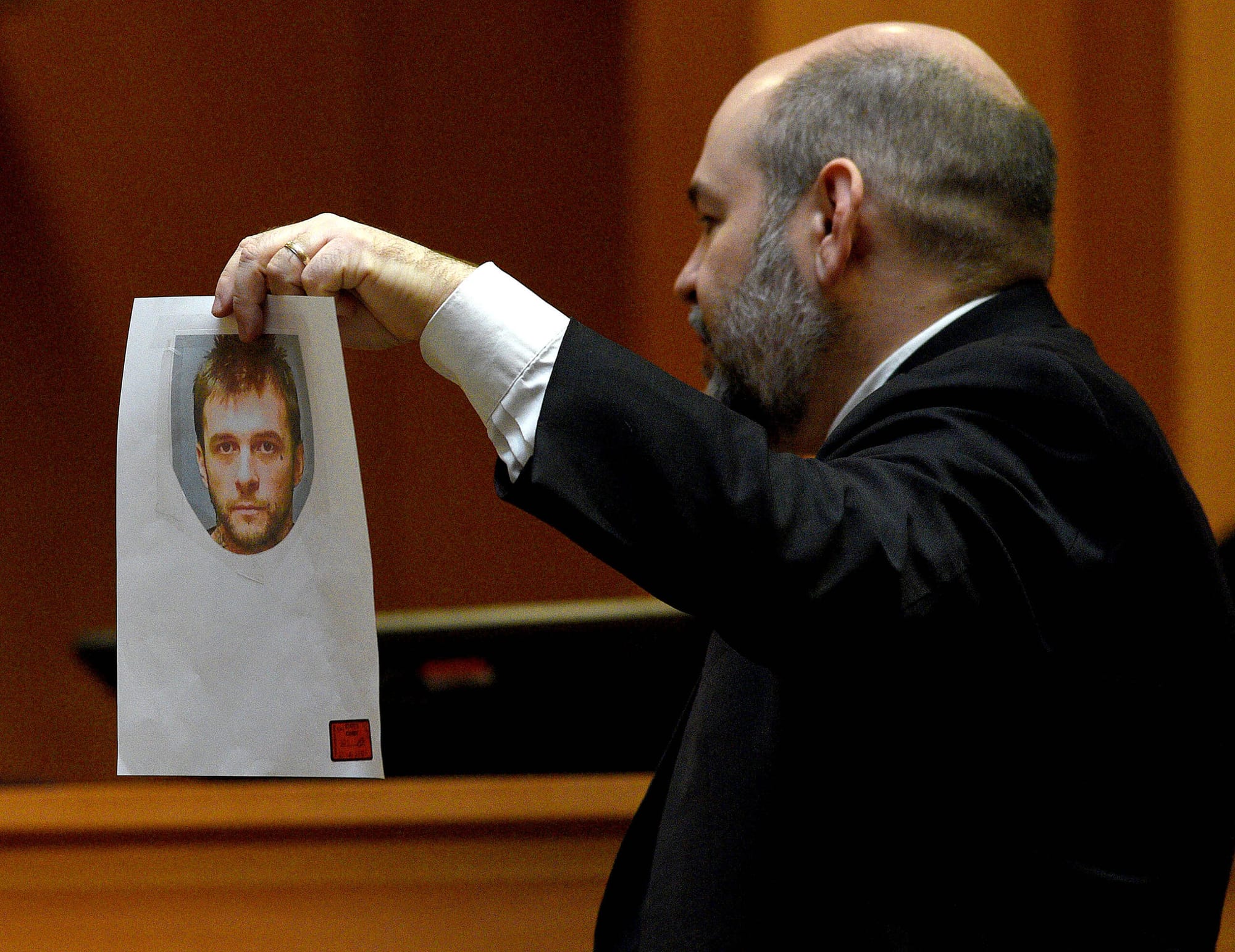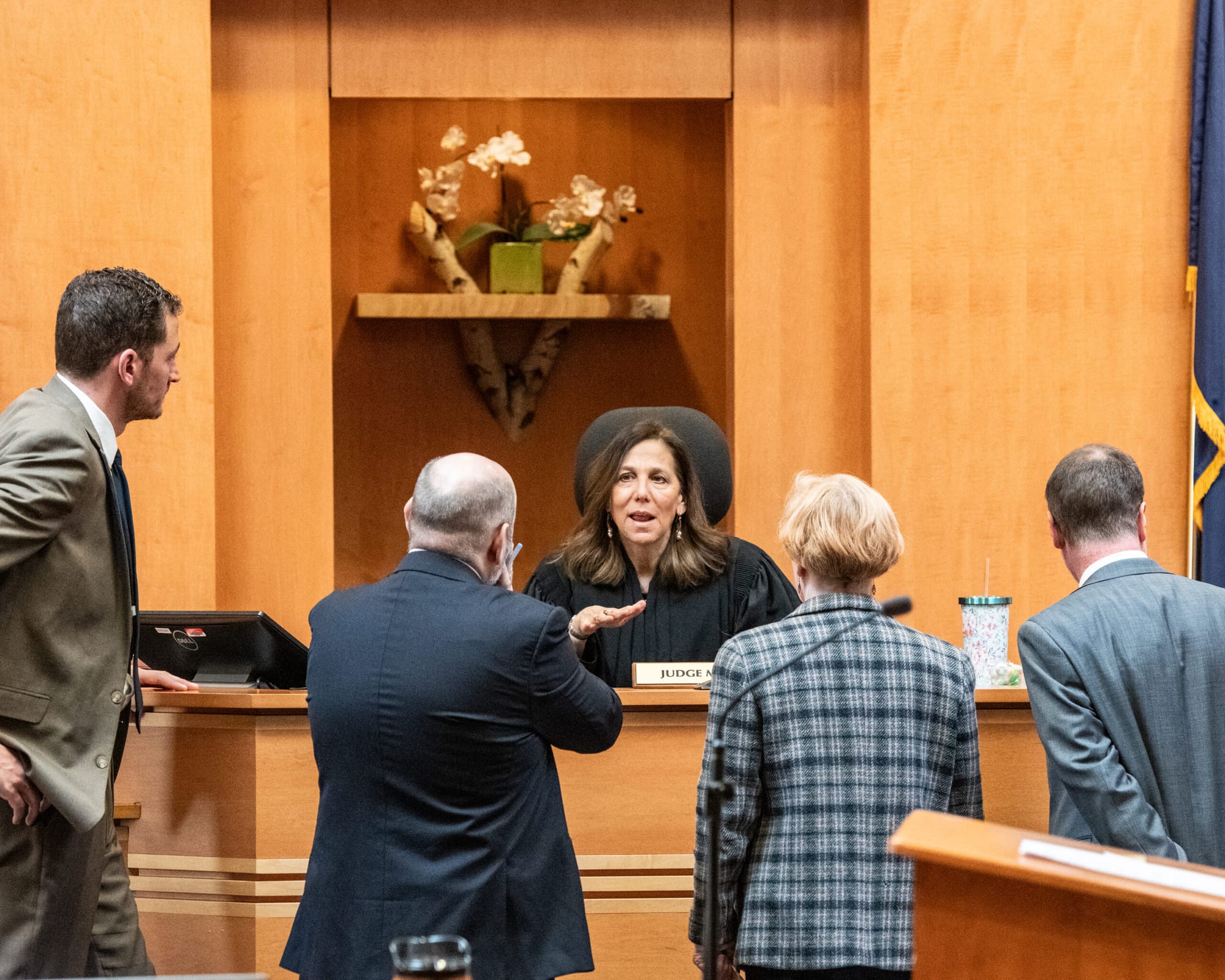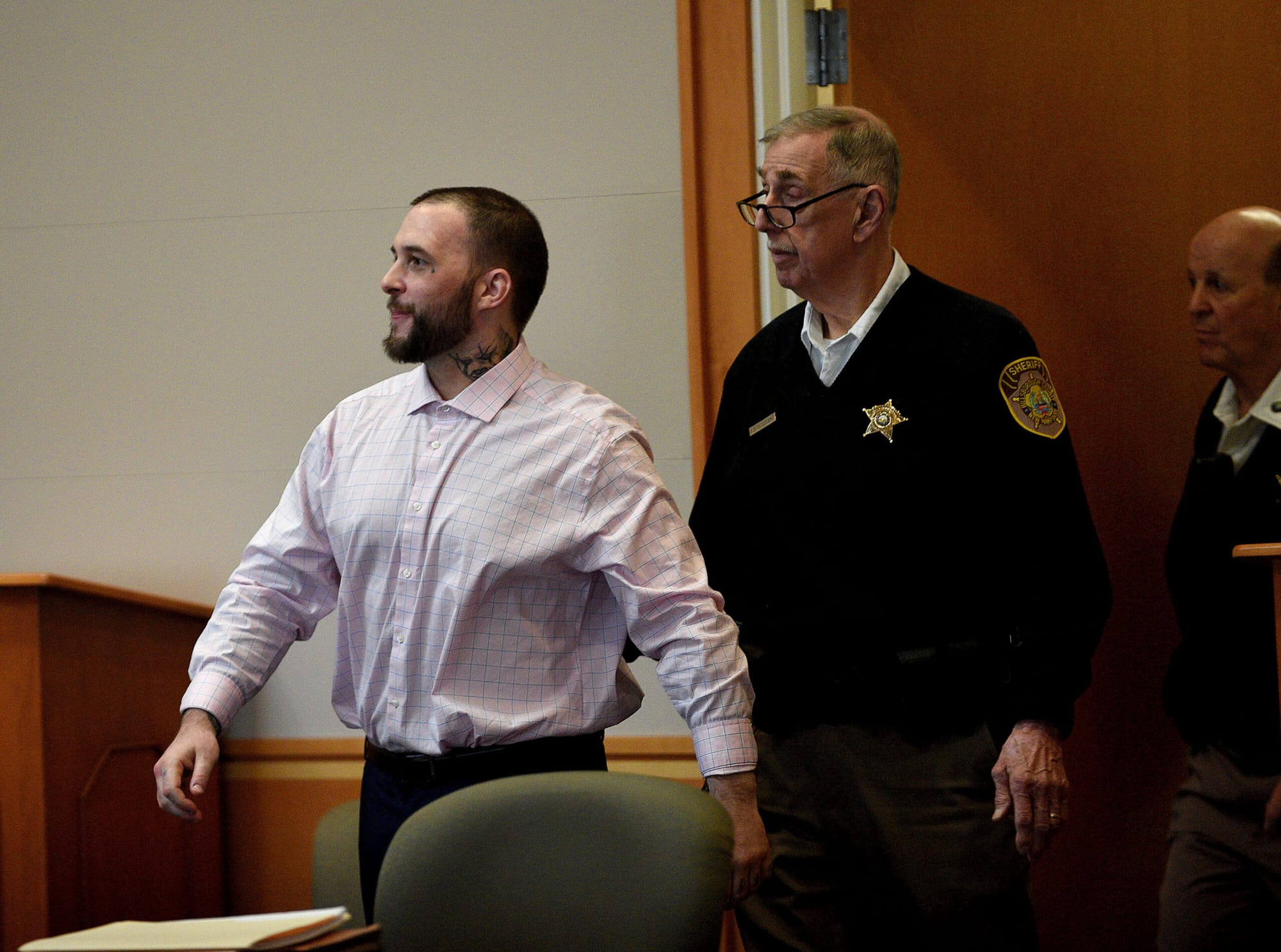Adam Montgomery’s absence from trial rare, not helpful to his case, legal experts say
Adam Montgomery, who hasn’t been in court since the second day of his trial, has the right to not be there, but the move is rare and won’t help him get acquitted, according to legal experts.


MANCHESTER, NH – Adam Montgomery, who hasn’t been in court since the second day of his trial, has the right to not be there, but the move is rare and won’t help him get acquitted, according to legal experts.
Montgomery, 33, is being tried in Hillsborough County Superior Court on charges of second-degree murder in the December 2019 death of his daughter, Harmony Montgomery, 5; falsifying physical evidence, for allegedly concealing her body; abuse of a corpse, for allegedly removing, concealing or destroying her body; and witness tampering for allegedly attempting to induce Kayla Montgomery, his estranged wife, to testify falsely. Montgomery has acknowledged his guilt on the falsifying evidence and concealing a corpse charges.
He last physically attended court on Feb. 6, the day the jury was empaneled. While it’s caused a stir among court watchers, he isn’t required to attend. Rule 43 of the Federal Rules of Criminal Procedure allows a defendant to be tried in absentia in all but death penalty cases, as long as he voluntarily absents himself after the trial has started.
He appeared in court via video conferencing Feb. 7, without the jury present, after his attorneys acknowledged his guilt on the falsifying physical evidence and abuse of a corpse charges. Judge Amy Messer asked him if he understood that, and he said he did. That was his last presence of any kind in the court.
“It’s really, really rare to have someone not be present for their trial,” said Anthony Naro, a senior attorney at Bernazzani Law, in Nashua. “If you’re going to trial, you’re going to try to win,” which means being in court.
Naro, who spent about 12 years in the state public defender’s office, called Montgomery’s decision not to attend his own trial self-sabotage. He said that he has not been following the trial closely, since he has his own cases to focus on, but in general there is no upside for a defendant to be absent from his own trial.
“I’d tell my client, if you want to go to trial and have a chance of winning, I suggest you show up every day,” he said.
But while an attorney can try to convince their client it’s in his best interest to attend his trial, that doesn’t mean the client will listen, Naro said. “Some people don’t listen to their lawyer, just like they don’t listen to their doctor, or their plumber,” he said.
Jonathan Chapman, a professor at the University of Maine School of Law, told WCSH-TV in Portland, Maine, that a defendant not attending his own trial is not common in his experience, which includes 30 years in the U.S. Attorney’s Office.
“It’s not a strategy that any criminal defense attorney – any responsible criminal defense attorney – would pursue, because it’s extremely disruptive to the court,” Chapman said. “One would think it would be striking to the jury, and that thought would be in their mind through the trial, if a defendant’s not sitting there,” he said. He added, though, that juries are typically good at following orders from the judge.

Messer, on the first day Montgomery didn’t attend physically, explained to jurors that it is Montgomery’s right to be absent and she ordered them not to speculate as to why he’s not there, and not infer any negative implication by it. Montgomery’s defense attorneys, Caroline Smith and James Brooks, from the state public defenders’ office, haven’t publicly said why Montgomery isn’t attending.
Montgomery, when he appeared in court Feb. 6, was shackled, because he was convicted in August of a weapons charge. He opted to wear leg shackles instead of a less obvious leg brace, which Messer confirmed with him, without the jury present, was his choice. The jury has not been told that Montgomery is incarcerated, and Messer pressed him on the fact that leg shackles would indicate that he is. He said that he understood that.
Messer ruled on Feb. 7 that Montgomery will be asked each morning, an hour before court is to begin, whether he wants to be brought from the prison, in Concord, to the Manchester courthouse. If he doesn’t want to attend, no transport will be sent for him. Since then, his absence has not been publicly discussed in the courtroom.

Naro, the Nashua criminal defense attorney said that, in general, a client who doesn’t want to appear in court is likely doing it as an act of defiance – he may believe he’s being persecuted by the government, and is making a statement, for instance.
He said a client may also be under the mistaken belief that if he doesn’t attend, it will be grounds for an appeal.
He said that he’s never had a client who wouldn’t attend their own trial, but has had some who insisted on wearing their orange jail jumpsuits instead of regular clothing in protest, a way to say, “Look at what the government is doing to me.”
Naro said that if Montgomery is guilty, and has a defiant way of thinking, “What does he have to lose at this point by just bucking the system?”
Montgomery is incarcerated in New Hampshire State Prison in Concord after being sentenced in August to 32 to 75 years for being an armed career criminal and possessing stolen guns in an unrelated case. He is appealing those convictions.





